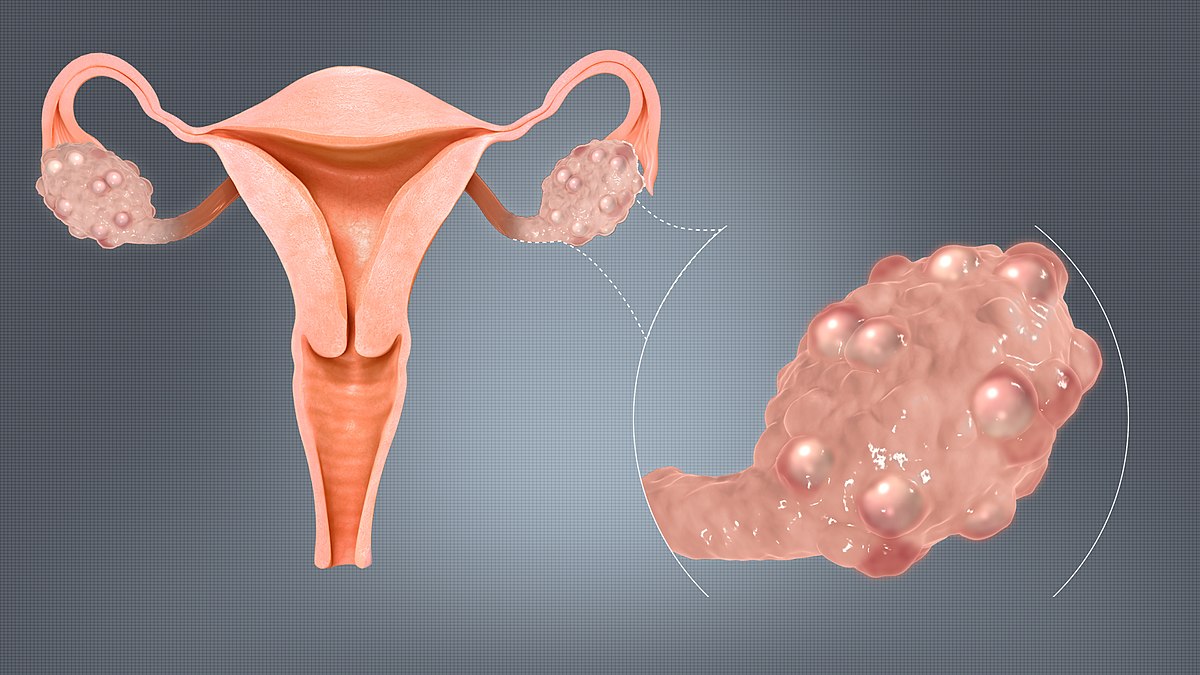The term “PCOS” refers to a widespread hormonal condition in which the ovaries don’t always release an egg each month. PCOS is also known as polycystic ovarian syndrome. It could make it challenging to get pregnant.
What is PCOS?
The term “PCOS” refers to a widespread hormonal condition in which the ovaries occasionally fail to release an egg at the end of the menstrual cycle (the start of a period to the start of the next one). It could make it challenging to get pregnant.
About 1 in 5 women in the UK are estimated to be affected, making it a fairly common condition.
If you have polycystic ovaries (PCO):
- Your ovaries are slightly larger than normal
- you have many more follicles (the fluid-filled pockets on the ovaries that release the eggs when you ovulate)
The presence of polycystic ovaries may not necessarily indicate PCOS. Your ovaries are slightly different from those of most women if you have PCO, whereas PCOS is a condition associated with unbalanced hormone levels.
Symptoms of PCOS
PCO is not a guarantee that you have PCOS. You would need to have PCO and a few of the symptoms listed below to be diagnosed with PCOS:
- irregular periods or none
- more facial or body hair
- less hair on the head
- difficulty losing weight or rapid weight gain
- acne or oily skin
- difficulty becoming pregnant
If the duration of your cycle (the interval between the start of your periods) fluctuates, your periods are considered “irregular.”
Menstrual cycles typically last 28 days, though they might be a little shorter or longer than that. You might have some of these PCOS symptoms, although they differ from woman to woman and can be less or more severe in others.
Causes Of PCOS
Though the actual cause of PCOS is unknown, it may be inherited as having the condition increases your risk of passing it on to your mother, aunts, or sisters.
Hormones are connected to PCOS symptoms:
- The small elevation of testosterone levels in PCOS-afflicted women is associated with many of the symptoms, including increased facial hair.
- If you have PCOS, you may have insulin resistance, which results in a higher level of blood glucose. Infertility issues and weight gain might result from high insulin levels.
- If PCOS is identified in you, your risk of acquiring diabetes later in life is enhanced.
PCOS Treatment If You Are Trying To Conceive
PCOS cannot be cured per se, although the symptoms can be managed. You will be recommended to lose weight through healthy diet and exercise if your BMI is over 30. Your body may ovulate as a result of this alone. Even if it doesn’t, it will improve the way your drug works and reduce pregnancy-related risks. Numerous medications are available to assist in conceiving when PCOS is present.
- clomifene citrate (the best known brand in the UK is Clomid) – this stimulates your ovaries to release eggs
- metformin is used to correct insulin resistance, which may also be present with PCOS
- a combination of the above.
If you are taking clomifene citrate tablets:
- you will have a transvaginal scan in the first cycle of treatment to check whether it is the correct dose for you. The scan will look at your follicles to see how they are developing.
- you will not be given it for more than six months as it increases your risk of ovarian cancer.
If clomifene citrate doesn’t work then you may be offered:
- gonadotrophins (a fertility drug that is based on the gonadotrophin hormones, which stimulate your ovaries to produce and ripen eggs). These are more likely to overstimulate your ovaries and cause a multiple pregnancy but you will have regular scans to check on developing follicles.
- surgery using a technique called laparoscopic ovarian drilling (LOD). This kills the tissue on the ovaries that is produces the testosterone.
- IVF – in which the egg is retrieved, fertilised outside the body and transferred into the uterus.
Chances of conceiving with PCOS
The majority of women with PCOS will be able to become pregnant with fertility therapy, even though it is challenging to provide statistics because cases vary so widely and different treatments have varying success rates. This is even more true for women under the age of 35.
We are here to partner with you on your journey to parenthood.
Omega Golden Fertility is a specialized, premium, and assisted conception center in Nigeria. At Omega, the best of science, technology, and the highest ethical practices are combined to deliver real value to our numerous clients. We consider ourselves as the last frontier in the assisted reproduction industry. With state of art facilities, highly trained specialists, and a culture of excellence, omega is poised to bring her clients a lasting smile. Wouldn’t you rather talk to us? Help is just a click away.
You can get started by booking an online consultation session today. Click the link below to book and schedule your hassle-free consultation.
DID YOU MISS OUR LAST INFERTILITY AWARENESS EVENT? WATCH FULL VIDEO BELOW
Facebook: @omegagoldenfertilityng
Instagram: @omegagolden
Twitter:@fertilityomega


